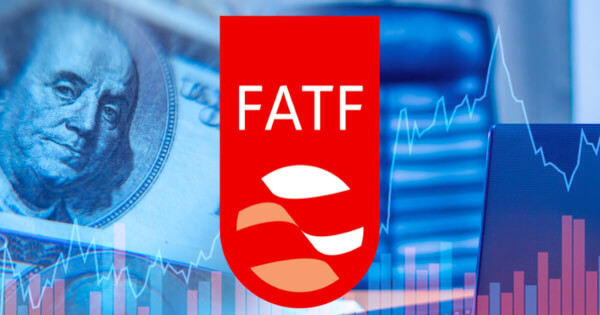Crypto & the FATF Travel Rule: FinCEN Suggests Challenges in Governance, Not Technology
The Financial Action Task Force (FATF) Travel Rule has been in the center of attention lately, which concerns crypto transactions above a certain amount must be accompanied by identifying information.The rule is an update to the existing FATF Recommendation 16, regarding cross-border and domestic wire transfers, and is intended to address the anti-money laundering (AML) and counter-terrorist financing (CFT) challenges as crypto adoption increases. The FATF Travel Rule could mean implications for virtual asset service providers (VASPs), including cryptocurrency exchanges, wallet providers, and custodians.


The Financial Action Task Force (FATF) Travel Rule has been in the center of attention lately, which concerns crypto transactions above a certain amount must be accompanied by identifying information.
The rule is an update to the existing FATF Recommendation 16, regarding cross-border and domestic wire transfers, and is intended to address the anti-money laundering (AML) and counter-terrorist financing (CFT) challenges as crypto adoption increases. The FATF Travel Rule could mean implications for virtual asset service providers (VASPs), including cryptocurrency exchanges, wallet providers, and custodians.
Financial institutions in the FATF member states are recommended to implement the new regulations by June 2020, a year after it was adopted by the FATF in June 2019.
The FATF has started observing digital assets in 2014, and defining certain terms has always been a challenge for the task force. As Amy Davine Kim, the Chief Policy Officer at the Chamber of Digital Commerce explained at Consensus: Distributed explained, there are still ongoing concerns regarding cybersecurity and privacy concerns over the travel rule.
Since the COVID-19 pandemic emerged, the Financial Crimes Enforcement Network (FinCEN) has published advisories on March 16 and April 3, to warn financial institutions to stay alert for malicious fraudulent transactions, and AML operations during the COVID-19 pandemic. This was due to the increase in these types of cases, as bad actors have leveraged the pandemic for theft and money laundering activities.
The FinCEN has taken a technology-neutral approach so far, as the network has seen the most challenges relating to governance and processes, rather than technology.
Kenneth Blanco, Director of the FinCEN stated, “the FinCEN also plans to publish multiple advisories highlighting common typologies used in pervasive fraud, theft, and money laundering activities related to the pandemic to better help the financial sector to better protect, and report this activity.”
Blanco also added that the FinCEN has observed that cybercriminals predominantly launder their proceeds and purchase the tools to conduct malicious activities via virtual currency. He said, “During this time of crisis where our people are more at risk or more vulnerable than ever, we, all of us, have a duty and responsibility to use our abilities, tools, and talents to protect others and ensure the stability of this ecosystem that we are creating and it depends on trust.”
Blanco concluded,
“We encourage the virtual currency sector to continue collaborative efforts to develop and implement these solutions and to keep FinCEN apprised their progress, including to participate in FinCEN’s innovation hours program."
Coinbase recently revealed that the company has become a banking client of JP Morgan’s, impacting the future outlook of cryptocurrency exchanges and banking relationships.
Regarding the news, Jeff Horowitz, the Chief Compliance Officer at Coinbase said the company is focusing on analytics and transaction monitoring systems as banks will want to see these features in the crypto ecosystem. While he is pleased to see JP Morgan and other banks getting into the space, he said he hopes to see solutions for lower barriers to entry, as well as the solutions to comply with the travel rule do not come from a money-making perspective.
He further suggested that a “regulated” VASP has not been defined globally, and the industry must work to decide a framework regionally, then work on going global.
Adam White, Chief Operating Officer at Bakkt said, “We’re going to see a bifurcation in the crypto space, we’re going to see white crypto, and we’re going to see grey crypto, and the different forms of crypto will most likely trade for different prices. Offshore unregulated exchanges that aren’t complying with the travel rule, their assets will be traded at different prices.”
Image source: Shutterstock


.jpg)
